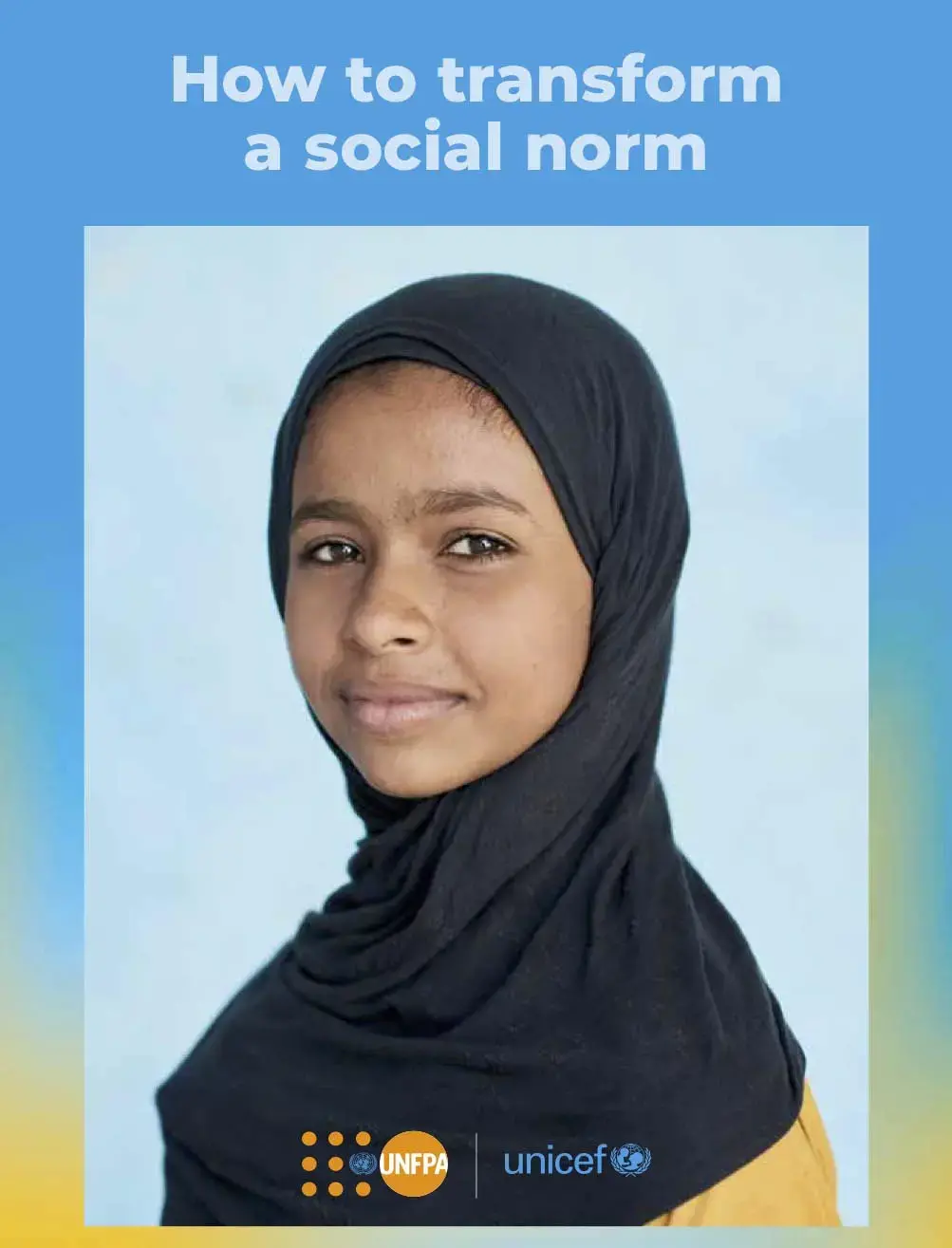As the largest global programme addressing FGM, the UNFPA-UNICEF Joint Programme on Female Genital Mutilation/Cutting: Accelerating Change plays a critical role in achieving Sustainable Development Goal target 5.3, calling for the elimination of all harmful practices by 2030.
How to Transform a Social Norm provides a reflection on the process of social norm change during Phase II (2014-2017) of the UNFPA-UNICEF Joint Programme on Female Genital Mutilation: Accelerating Change.
The first part of the report addresses the challenges, complexities and strategies employed by the Joint Programme, which uses a social norms lens to understand how the traditional practice persists in spite of the physical and emotional scars it exacts on girls and women. Short features illustrate many of the main ideas. Part II is a case study of how the Joint Programme's strategies have been implemented in Nigeria, a country where some 10 million girls are at risk of FGM by 2030.
A companion booklet, Performance Analysis for Phase II, takes a more quantitative approach to demonstrate the positive difference the Joint Programme has made in galvanizing support for the elimination of FGM.
